2018 Mercedes-Benz C-class facelift review, test drive
All-new engines and a few tech upgrades help keep the C-class at the cutting edge of its segment.
Published on Jun 21, 2018 10:35:00 AM
59,048 Views
Follow us on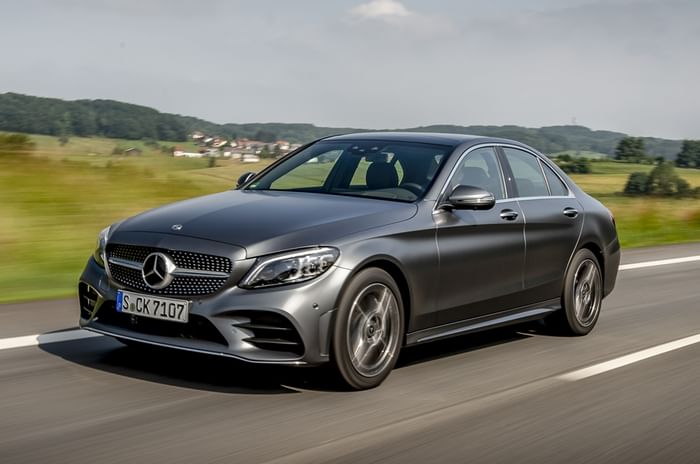
The Mercedes C 300d.
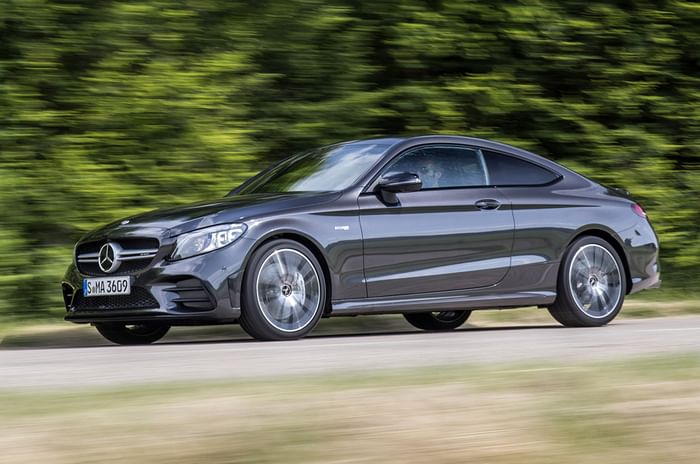
The Mercedes-AMG C 43 Coupe.
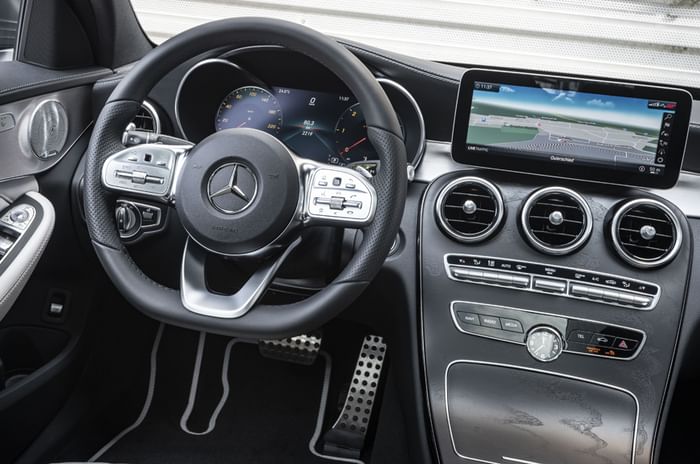
The insides of the facelift C-class.
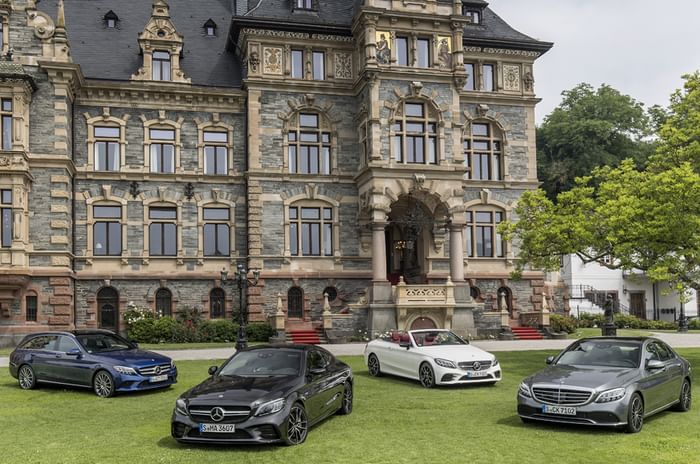
The refreshed C-class family.
What is it?
It’s been four whole years since this generation of C-class has been around, but it doesn’t feel that long, since the car, for the most part, has aged so well. Sure, newer rivals have taken the game forward, particularly in the technology and infotainment departments, but it’s the classic design and solid luxury values that have kept the C desirable. An update, however, is rarely a bad thing, and that’s what we will be getting, in India, in October 2018. We’ve been driving the mid-cycle refresh of the C-class in Luxembourg and Germany, and there’s quite a lot to report.
However, the looks don’t account for much of what’s new. The exterior is largely the same, with only minor changes to the grilles, bumpers and wheels to report. There are new configurations for the full-LED headlamps, however, the more basic setup offering two rows of LED units one atop the other, and the more advanced ‘Multi-Beam’ setup using a large projector unit that is capable of shooting its light beam 650 metres down the road. Nice! There’s also a new LED pattern in the tail-lamps and the AMG C 43 models now get round tailpipes as a differentiator.
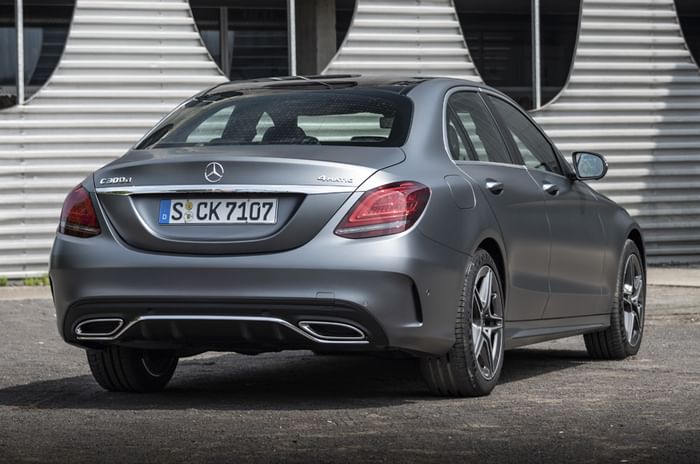
Inside, the big change is to the screens. You now get an optional 10.25in central screen for the COMAND infotainment and a 12.3in screen replacing the analogue dials – both options we hope Mercedes ticks for India. The steering wheels are the same as in the S-class – a more elegant one for the standard car and a sportier flat-bottomed one for AMG models – and both now feature more controls, including the dual touch-pad interface for the infotainment. Other than that, it’s worth noting that Mercedes, listening to feedback on the existing car, has introduced more matte wood (rather than glossy) trim options and darker leather colours, which we hope make it to India to replace the somewhat-passé black and beige.
| Mercedes-Benz C-Class Price, Mileage, Specifications, Features and Variants | |
|---|---|
| Brand | Mercedes-Benz |
| Model Name | C-Class |
| Mercedes-Benz C-Class Price | ₹ 68.76 lakh - 2.25 crore |
| Mercedes-Benz C-Class Range/Mileage | Petrol : 16.9kpl | Diesel : 23kpl |
| Mercedes-Benz C-Class Specifications | Sedan | 4 doors | 5 seats View All Specs |
| Mercedes-Benz C-Class Features | LED headlight | 11.9-inch Touchscreen display | 7 airbags View All Features |
| Mercedes-Benz C-Class Variants | 200 Progressive 1.5 Petrol | 220d Progressive 2.0 Diesel | C300 AMG Line 2.0 Petrol View All Variants |
What’s it like to drive?
All of the engines are either all-new or updated. The 200 petrol, for instance, is now a 1.5-litre, four-cylinder turbocharged unit, rather than a 2.0-litre (although the power output is the same), the 300 four-cylinder petrol engine is now up to 258hp and will now be offered in both the Cabriolet and the sedan, the 220d is the new 2.0-litre (code: OM654) unit we saw on the E-class (the 2.1-litre OM651 is no more), and the twin-turbo 250d is replaced by the 300d, which is a more powerful version of the 220d’s 2.0-litre motor. The AMG 43 motor is the same twin-turbo 3.0 V6 as before, but power is now up 23hp to 390hp. We drove the C 300d, the C 200 and the AMG C 43.
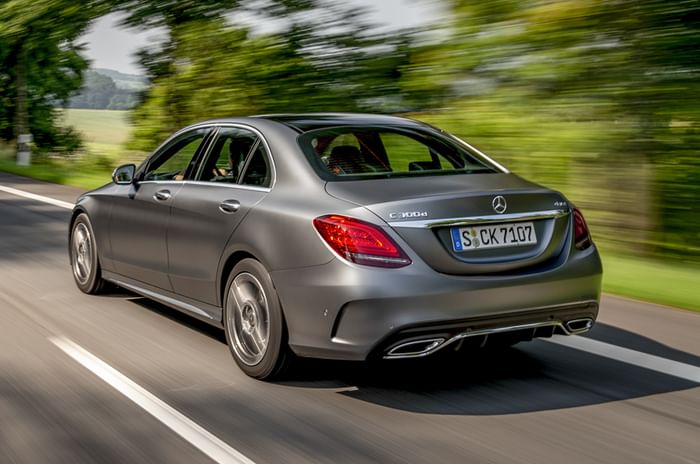
The new C 300d makes the same 500Nm of torque as the C 250d, but power is up from 204hp to a solid 245hp! Do you feel the 41hp bump immediately? Not quite, because the 250d was a strong engine to begin with, and because the 9G-Tronic automatic gearbox did (and still does) such a stellar job of delivering the power. But yes, it is evident that you always have a strong reserve of power at your disposal, and this is particularly felt when you’re overtaking at high speeds. It’s also more refined than the old 2.1-litre unit, but there’s still quite a boomy noise when you open it up a bit. The gearbox, too, is seamless for the most part, but can fumble slightly when kicking down hard for sudden acceleration.
The new C 200 has a high specific output, wringing out 184hp and 280Nm from a 1.5-litre four-cylinder turbo-petrol motor. It’s one of the new-generation motors (code: M264) from the same family as the C 300 petrol, and uses a twin-scroll turbo and a clever ‘EQ Boost’ system. This uses an integrated starter-generator (ISG) based on a separate 48V electrical system to store electrical energy from regenerative braking and then deploy it to fill torque gaps, such as while the turbo is spinning up. This system, however, won’t be coming to India, and we’ll just get the car in pure internal-combustion form; don’t worry though, the outputs will remain unchanged. In practice, you do feel the symptoms of downsizing a little bit. It’s a bit noisier at low revs than the 2.0-litre engine it replaces and it doesn’t have quite as much enthusiasm moving off the line either. In the mid-range it’s just fine and combined with the excellent nine-speed automatic, progress feels just fine. At full tilt, however, is when you feel the downsizing again; overtaking at high speeds does feel a bit strained and the motor gets quite vocal too. So overall, it’s not quite as effortless or refined as its larger-displacement predecessor, but it gets the job done.
The big caveat when it came to evaluating the ride and handling (other than Europe’s fantastically smooth roads, of course) was that our C 300d sedan test car had air suspension and AWD – neither of which will be available on the Indian version. The ride quality, as a result, was really nice and cushy, and we’ll have to wait and see how they calibrate the passive steel springs when the car comes to India; the current car, for instance, is set up a bit too firm for our market. Secondly, because of the AWD and the air suspension, the steering felt nowhere near as sharp or connected as the one we have in India, but instead felt a bit slow and soft.
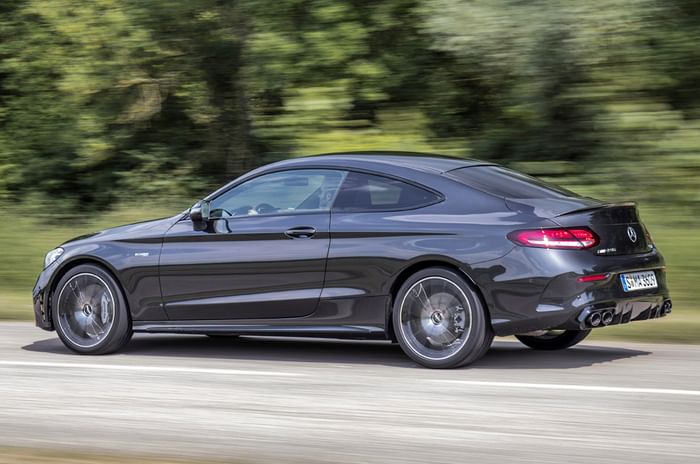
We also drove the AMG C 43, but interestingly, we drove it in the Coupe body style, as Mercedes will be bringing this version to our market as well. As before, it gets 4Matic AWD, but now it has a 23hp power bump too. This car feels more or less the same as before, although – and this may be because driving through a German forest is like driving through an echo chamber – it seems even louder this time. It still feels a bit heavier and more tied down than the standard cars, and all the settings on the adaptive dampers feel a touch firmer too. It’s technically a four-seater, but as with most two-door cars of this size, space in the back is very tight.
The last piece of the experience is the suite of Level 2 Autonomous or self-driving tech that debuted in India on the facelifted S-class, which worked really well in the C-class on our test drive. But Mercedes says, save for a few small sub-features, this won’t be coming to India, simply as it would upset the model hierarchy – the E-class doesn’t get it, so the C cannot.
Should I buy one?
Certainly, if you were already considering a C-class, the deal has only gotten sweeter now, but that’s the case with most updates, isn’t it? Moreover, it just feels like a more modern car this time around. Some interesting questions do arise though. Will the Indian market take to a downsized 1.5-litre motor? Will Mercedes bite the bullet and spec the car to the max with the high-resolution screens (a bugbear of the current car is its small and dated infotainment unit)? Will they get the suspension for India right this time? Will India accept a coupe body style, even if only for the high-end AMG variant? These are all questions that will be answered in October, but they’re also a good sign, because that means the segment has evolved, and you can be sure Mercedes has been listening to feedback and will evolve with it. What is in no doubt, though, is that this one model range has so much diversity to offer. With a number of engines and body styles to suit a number of buyers and budgets, the facelifted C-class will certainly have something for everyone.
Also see:
2018 Mercedes-Benz C 300d image gallery
2018 Mercedes-AMG C 43 Coupe image gallery
Tech Specs 
Copyright (c) Autocar India. All rights reserved.


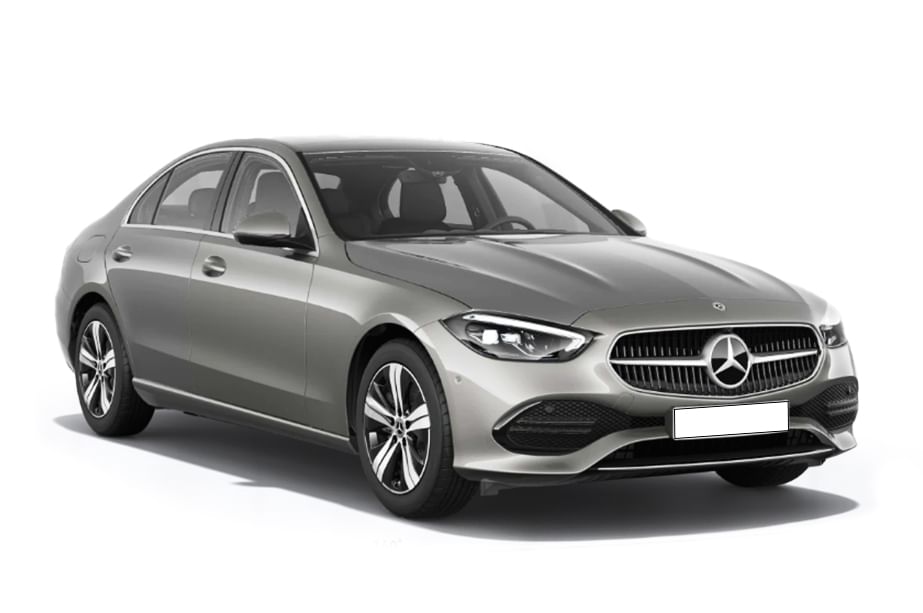








 Engine
Engine Transmission
Transmission Efficiency
Efficiency Body
Body Suspension
Suspension Steering
Steering Brakes
Brakes Dimensions
Dimensions
Comments
Member Login
Personal Details
No comments yet. Be the first to comment.